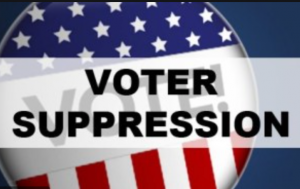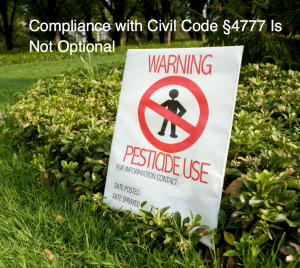In October 2021, Governor Gavin Newsom approved the following three bills affecting homeowner association elections: SB 392, SB 432, and AB 502. These bills made some improvements to the HOA election laws that were passed in 2019, but then they complicated others. First, SB 392 made one simple improvement regarding election material retention. The prior law required retention until the election cannot be contested, which left many people wondering, when is that? And the new law that became effective January 1, 2022, made it simple by requiring retention of election materials for one year after the election date.
As a reminder, California Civil Code § 5200 (c) defines “association election materials” as returned ballots, signed voter envelopes, the voter list of names, parcel numbers, and voters to whom ballots were to be sent, proxies, and the candidate registration list. Signed voter envelopes may be inspected but may not be copied.
Next, SB 432 cleaned up a discrepancy that the 2019 law had left between the Davis-Stirling Act andnthe Corporations Code, both of which apply to most community associations. Corporations Code Section 7511(c) was amended by extending the maximum time for associations to hold the recall/removal and new board member election vote from 90 to 150 days from the date of receipt of the petition. This will allow associations to comply with both Civil Code Section 5115, which requires associations to send a general notice 90 days before an election, and the Corporations Code, which requires the recall/removal to occur within 90 days of the receipt of the petition. According to the old law, in order to comply with both statutes, associations would have been required to send the notice on the day they received the petition.
 Reporting companies (which includes community associations) are not currently required to file their beneficial ownership information with FinCEN and will not be subject to liability if they fail to do so.
Reporting companies (which includes community associations) are not currently required to file their beneficial ownership information with FinCEN and will not be subject to liability if they fail to do so. HOA Law Blog
HOA Law Blog




 It is fall, and for most California community associations, it is budget season and boards and managers are in the process of preparing budgets for the 2022 fiscal year. Along with the next fiscal year’s budget, boards and managers need to be thinking of all of the disclosures that California law requires be made. That is why SwedelsonGottlieb annually publish this Checklist. The good news is that there are no major changes in the law relating to disclosures. But that does not mean that there are no other issues or disclosure requirements to consider.
It is fall, and for most California community associations, it is budget season and boards and managers are in the process of preparing budgets for the 2022 fiscal year. Along with the next fiscal year’s budget, boards and managers need to be thinking of all of the disclosures that California law requires be made. That is why SwedelsonGottlieb annually publish this Checklist. The good news is that there are no major changes in the law relating to disclosures. But that does not mean that there are no other issues or disclosure requirements to consider.  I first heard about voter suppression in law school, where I learned that the United States has a long tradition of threatening voter access. I thought it was a thing of the past. But I have been surprised by recent news stories that tell us that there are real efforts in 2020 to make it harder for some Americans to vote. For example, a Memphis, Tenn., poll worker turned away people wearing Black Lives Matter T-shirts, saying they couldn’t vote. Robocalls warned thousands of Michigan residents that mail-in voting could put their personal information in the hands of debt collectors and police. In Georgia, officials cut polling places by nearly 10%, even as the number of voters surged by nearly 2 million.
I first heard about voter suppression in law school, where I learned that the United States has a long tradition of threatening voter access. I thought it was a thing of the past. But I have been surprised by recent news stories that tell us that there are real efforts in 2020 to make it harder for some Americans to vote. For example, a Memphis, Tenn., poll worker turned away people wearing Black Lives Matter T-shirts, saying they couldn’t vote. Robocalls warned thousands of Michigan residents that mail-in voting could put their personal information in the hands of debt collectors and police. In Georgia, officials cut polling places by nearly 10%, even as the number of voters surged by nearly 2 million.  By David Swedelson, Esq. Senior Partner and Community Association Attorney at SwedelsonGottlieb
By David Swedelson, Esq. Senior Partner and Community Association Attorney at SwedelsonGottlieb  From the Community Association Attorneys at SwedelsonGottlieb
From the Community Association Attorneys at SwedelsonGottlieb